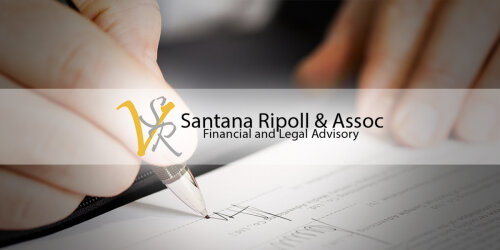Best Real Estate Contracts and Negotiations Lawyers in Puerto Plata
Share your needs with us, get contacted by law firms.
Free. Takes 2 min.
Free Guide to Hiring a Real Estate Lawyer
List of the best lawyers in Puerto Plata, Dominican Republic
About Real Estate Contracts and Negotiations in Puerto Plata, Dominican Republic
Real estate contracts and negotiations in Puerto Plata, Dominican Republic, involve formal agreements and discussions concerning the sale, purchase, lease, or transfer of property within this region. These contracts are legal documents that outline the terms and conditions agreed upon by the parties involved. Given the complexities of local laws, nuanced differences in property rights, and cultural aspects that may influence negotiations, understanding the legal landscape is crucial for successfully navigating real estate transactions.
Why You May Need a Lawyer
Several common scenarios indicate the need for legal assistance with real estate contracts and negotiations in Puerto Plata:
- Property Purchase or Sale: Legal guidance ensures that contracts are comprehensive and align with local real estate laws.
- Disputes: Conflicts over property rights or breaches of contract may require legal intervention to be resolved effectively.
- Inheritance Cases: Handling inherited property can be intricate, necessitating legal advice to navigate inheritance laws and procedures.
- Title Searches: Lawyers can perform thorough title searches to confirm the legitimacy of property ownership.
- Lease Agreements: Both landlords and tenants may need legal support to draft or negotiate favorable lease terms.
Local Laws Overview
In Puerto Plata, real estate transactions are governed by national laws as well as local regulations that may influence the process. Key aspects include:
- Ownership Rights: Understanding the distinction between personal and communal property ownership is essential.
- Registration: Real estate must be registered with local authorities to verify ownership and ensure its legality.
- Tax Obligations: Purchasers may face specific tax liabilities, such as property transfer taxes, which must be considered during negotiations.
- Foreign Ownership: While foreigners can own property, certain restrictions and requirements apply, particularly near maritime zones.
Frequently Asked Questions
What are the basic components of a real estate contract in Puerto Plata?
A real estate contract typically includes details about the property, the price, the terms of payment, any contingencies, the closing date, and the responsibilities of both parties.
How can I ensure a property has a clear title?
Conducting a title search through the local property registry, often aided by a lawyer, will confirm the property's ownership status and reveal any existing liens or encumbrances.
Are there special considerations for foreigners buying property?
Yes, foreigners need to abide by national laws regarding foreign property ownership, especially concerning properties near coastal areas, which may have additional regulations.
What taxes are involved in a real estate transaction?
The main tax associated with property transactions is the property transfer tax, typically set at 3% of the property's declared value. Legal advice can help assess applicable taxes.
Can a lawyer help with property appraisal?
While lawyers do not typically perform appraisals, they can recommend qualified professionals and help you understand the implications of the appraisal on the transaction.
What should I do if I have a dispute with a real estate agent?
It's crucial to review contracts thoroughly and consider legal advice if a dispute arises. This might involve negotiation or, if needed, litigation to resolve the issue.
Is it essential to register a lease agreement?
While not mandatory, it's advisable to register lease agreements to provide an official record, which can protect both parties' rights in case of disputes.
What protections exist against real estate fraud?
Engaging a lawyer to conduct due diligence, verifying the seller’s ownership, and handling negotiations helps safeguard against fraud.
When is a power of attorney needed in real estate transactions?
A power of attorney may be necessary when one party is unable to attend the transaction closing, allowing them to authorize another individual to act on their behalf.
How is conflict resolution typically handled in real estate negotiations?
Conflicts might be resolved through negotiation, mediation, arbitration, or litigation, depending on the nature of the dispute and the agreement between parties.
Additional Resources
- Junta Central Electoral (JCE): Manages civil registration, including property transactions.
- Dirección General de Impuestos Internos (DGII): Offers information on property taxes.
- Local Real Estate Agencies: Can assist with market insights and available listings.
- Legal Associations: Such as the Dominican Bar Association, provide resources for finding competent legal representation.
Next Steps
If you require legal assistance in real estate contracts and negotiations, consider the following steps:
- Identify Your Needs: Clearly define your objectives and potential legal concerns regarding your real estate transaction.
- Research Legal Professionals: Look for lawyers or law firms with expertise in real estate law and a good reputation in Puerto Plata.
- Arrange Consultations: Meet with potential legal advisors to discuss your situation and receive personalized advice.
- Verify Credentials: Ensure that your chosen lawyer is properly registered and experienced in handling similar cases.
- Execute a Retainer Agreement: Formalize your relationship with your lawyer, outlining the terms of service and fees.
- Collaborate and Communicate: Maintain open communication with your legal advisor throughout the process to facilitate smooth transactions.
Lawzana helps you find the best lawyers and law firms in Puerto Plata through a curated and pre-screened list of qualified legal professionals. Our platform offers rankings and detailed profiles of attorneys and law firms, allowing you to compare based on practice areas, including Real Estate Contracts and Negotiations, experience, and client feedback.
Each profile includes a description of the firm's areas of practice, client reviews, team members and partners, year of establishment, spoken languages, office locations, contact information, social media presence, and any published articles or resources. Most firms on our platform speak English and are experienced in both local and international legal matters.
Get a quote from top-rated law firms in Puerto Plata, Dominican Republic — quickly, securely, and without unnecessary hassle.
Disclaimer:
The information provided on this page is for general informational purposes only and does not constitute legal advice. While we strive to ensure the accuracy and relevance of the content, legal information may change over time, and interpretations of the law can vary. You should always consult with a qualified legal professional for advice specific to your situation.
We disclaim all liability for actions taken or not taken based on the content of this page. If you believe any information is incorrect or outdated, please contact us, and we will review and update it where appropriate.









